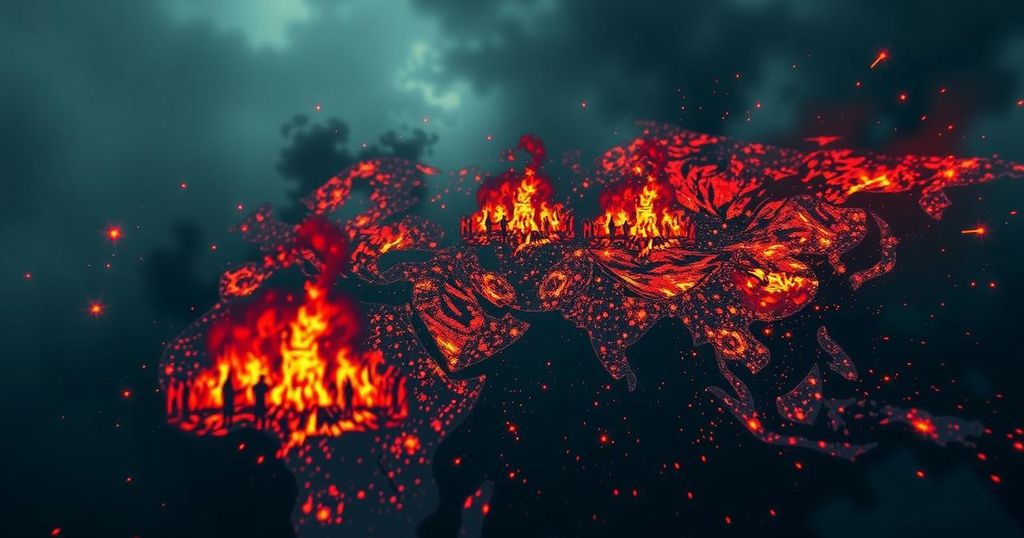Numerous countries experienced political upheaval in 2024 due to attempts to overthrow governments by military or political means. Nations like Bangladesh, Myanmar, Syria, and Haiti have faced intense violence and protests, leading to instability and humanitarian crises. The aftermath of coups has often resulted in further unrest, necessitating international attention and intervention to restore order and protect vulnerable populations.
In 2024, numerous nations across the globe experienced significant political upheaval, with attempts at regime changes by military or political means. Countries such as Bangladesh, Myanmar, Syria, and Haiti have been at the forefront of violent upheavals and protests aimed at overturning existing governments. While some of these coups have succeeded, the aftermath has often led to ongoing unrest, raising concerns over the stability of these nations and their surrounding regions.
In Bangladesh, a wave of student-led protests erupted against Prime Minister Sheikh Hasina’s policies, culminating in her fleeing to India amidst violent clashes that resulted in over 700 deaths. A new interim government formed, led by Nobel Peace Prize laureate Muhammad Yunus. However, the situation remains volatile as Islamist factions target minorities, particularly Hindus, leading to condemnation from both Indian officials and international observers.
Syria continues to grapple with civil conflict as Islamist rebels launched a significant offensive that successfully captured Aleppo. This resurgence indicates the potential for escalating violence as these groups increase their control, aided by a weakened government, despite past military support from Russia.
In Myanmar, civil war has ravaged the country following the coup that removed the elected government led by Aung San Suu Kyi. The ensuing conflict has resulted in over 5,300 deaths and 3.3 million displaced individuals, with some rebel groups recently expressing interest in peace talks under Chinese mediation.
Haiti’s situation has worsened significantly, with armed gangs controlling vast areas amidst political instability. Despite international efforts to restore order, gang violence has led to thousands of deaths and mass displacements, particularly affecting women and children in Port-au-Prince.
Other regions, such as the Democratic Republic of Congo, are also experiencing ongoing conflicts with rival rebel factions exacerbating humanitarian crises. This critical condition reveals the fragility of political structures and the catastrophic impact of coups on societies and neighboring nations, reflecting urgent needs for international attention and intervention to restore stability.
The political landscape in several countries has been dramatically altered by coups and violent protests, reflecting deep-seated issues within their governmental structures. In 2024, we witnessed attempts to overthrow governments in diverse regions, highlighting how such political unrest not only destabilizes the affected nations but also poses challenges to regional stability. The cases of Bangladesh, Syria, Myanmar, and Haiti illustrate a broader pattern of civil strife fueled by dissatisfaction with ruling authorities, lack of democratic processes, and the rise of extremist groups amidst chaos. This provides an understanding of why these crises must be monitored and addressed by the international community.
The events of 2024 across various nations spotlight the repercussions of governmental crises triggered by coups and protests. Countries such as Bangladesh, Syria, Myanmar, and Haiti serve as cautionary tales of how attempts at regime change can lead to devastating violence and exacerbate humanitarian crises. These episodes underscore the critical need for effective international responses to foster peaceful resolutions and support the reinstitution of democratic governance to prevent further deterioration of socio-political environments.
Original Source: www.news18.com






